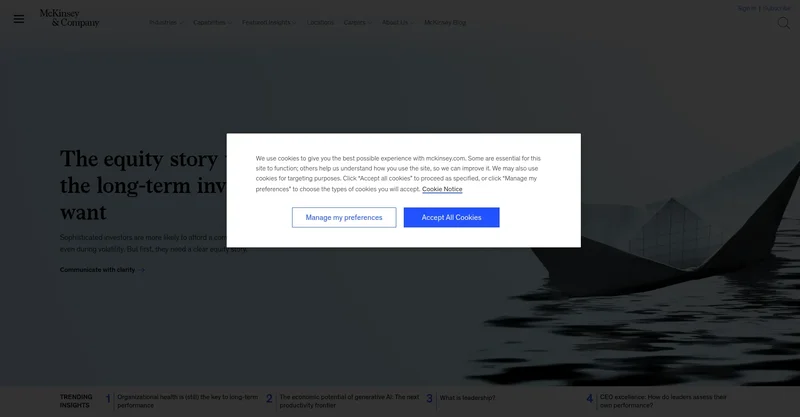McKinsey's AI Push: What it Means for Consulting and the Future of Work
Deloitte's Nuclear Fallout: A Spark for Audit Revolution?
It's easy to get bogged down in the headlines. Thirty-four million dollars. Nuclear fiasco. Deloitte. It sounds like a bad movie plot, doesn't it? But what if I told you this wasn't just a story about corporate missteps, but a potential catalyst for a long-overdue revolution in the world of auditing? What if this moment of accountability sparks a shift towards transparency and innovation that benefits everyone?
Think about it: for years, the Big Four accounting firms—Deloitte, EY, KPMG, and PwC—have operated with a certain untouchability. They're the gatekeepers of financial truth, yet often seem to exist outside the very rules they enforce. EY's partner pay rising to £787,000? That’s nice for them, but where is the incentive to provide real value? Where’s the incentive to avoid another Enron, another WorldCom, another… well, another nuclear fiasco?
The Ghost of Alphaville and the Future of Accountability
That FT Alphaville article, "Axes of Evil: McKinsey squares the circle - Financial Times," published back in 2025, it wasn't just some random piece of financial commentary. It was a warning. A signal that the public's tolerance for opaque corporate practices was wearing thin. It seems like things are starting to change, albeit slowly.
This Deloitte settlement, while not a victory in itself, is a sign that the tide might be turning. The question now is: how do we ensure this isn't just a one-off? How do we build a system that proactively prevents these kinds of failures, rather than simply punishing them after the damage is done?

I believe the answer lies in technology. Imagine a world where AI-powered auditing tools constantly monitor financial data, flagging anomalies and potential risks in real-time. A world where blockchain technology provides an immutable record of transactions, making it virtually impossible to hide fraudulent activity. We're not talking about replacing human auditors entirely, but augmenting their capabilities with powerful tools that can analyze vast amounts of data with unparalleled speed and accuracy. This uses machine learning—in simpler terms, it means the computer can learn from existing data and make predictions based on the patterns it detects.
We need to think about the incentive system in auditing. Right now, firms are incentivized to keep their clients happy. What if the incentive was to find problems? To root out corruption? We could create a system where firms are rewarded for identifying risks and preventing failures. A system that values transparency and accountability above all else.
What does it mean for the future of auditing? Can we envision a world where AI and blockchain revolutionize the industry, fostering transparency and preventing future scandals? Or are we doomed to repeat the mistakes of the past?
A Glimmer of Hope in the Face of Complexity
When I first read about the Deloitte settlement, I felt a familiar wave of frustration. But then, I started thinking about the possibilities. About the potential for this moment to spark real change. About the opportunity to build a more transparent, accountable, and trustworthy financial system. It's a complex challenge, no doubt. But I truly believe that with the right technology and the right incentives, we can create a future where corporate failures are far less frequent and far less devastating. The speed of this is just staggering—it means the gap between today and tomorrow is closing faster than we can even comprehend.
I'm not saying it will be easy. There will be resistance. There will be setbacks. But the potential rewards are too great to ignore. A more stable, equitable, and sustainable global economy? That's a future worth fighting for.
